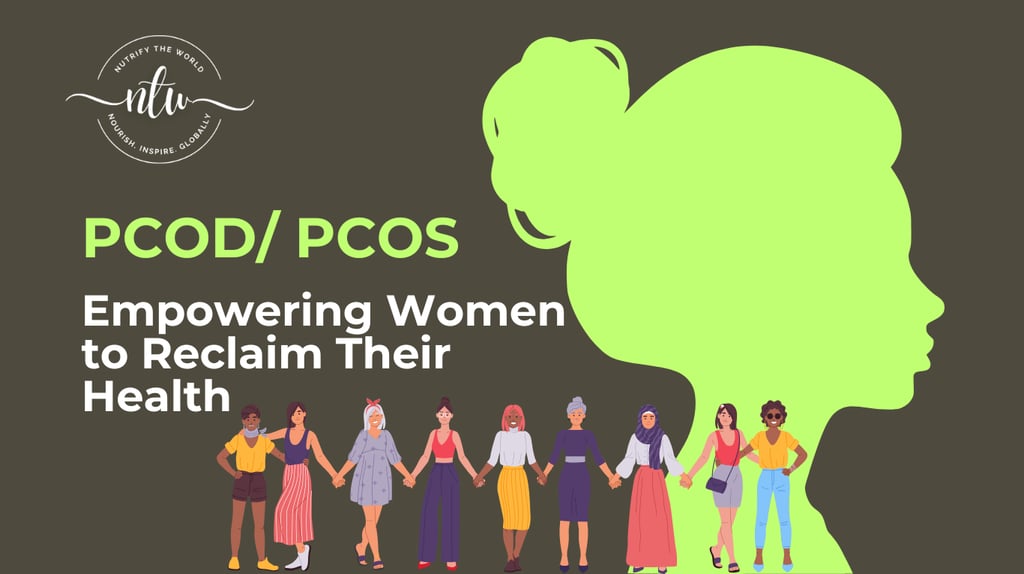PCOD/ PCOS Challenges? Manage Effectively the Natural Way !!
PCOD and PCOS are closely related but slightly different conditions. PCOD is characterized by enlarged ovaries with multiple immature eggs, while PCOS is a metabolic disorder leading to hormonal imbalances that can affect the entire body.


Breaking the PCOD/PCOS Barrier: Empowering Women to Reclaim Their Health
Polycystic Ovary Syndrome (PCOS) and Polycystic Ovary Disease (PCOD) have become increasingly prevalent among Indian women in recent years. These hormonal disorders affect millions of women globally, but the impact in India is particularly concerning due to the unique cultural, lifestyle, and dietary factors present in the region. While awareness around PCOD/PCOS is growing, many women still face challenges in identifying, managing, and overcoming these conditions. This article sheds light on the health challenges faced by Indian women with PCOD/PCOS and provides actionable solutions to help them take control of their health.
Understanding PCOD/PCOS
PCOD and PCOS are closely related but slightly different conditions. PCOD is characterized by enlarged ovaries with multiple immature eggs, while PCOS is a metabolic disorder leading to hormonal imbalances that can affect the entire body. Both conditions disrupt the menstrual cycle and can cause symptoms like:
Irregular or missed periods
Excessive hair growth (hirsutism) on the face and body
Weight gain, particularly around the abdomen
Acne and oily skin
Hair thinning or male-pattern baldness
Mood swings and depression
Difficulty conceiving
While the exact cause of PCOD/PCOS is still unclear, genetics, lifestyle, and environmental factors play significant roles. For Indian women, these challenges are compounded by specific societal and cultural pressures.
Unique Challenges Faced by Indian Women
1. Lack of Awareness and Late Diagnosis
Many women in India are unaware of the symptoms of PCOD/PCOS. The normalization of irregular periods and the stigma around discussing reproductive health often lead to delayed diagnosis. By the time women seek medical help, the condition may have already progressed, making treatment more complex.
2. Cultural and Social Pressures
In Indian society, women often face immense pressure to conform to traditional beauty standards and fulfill familial expectations, including marriage and childbearing. These pressures can exacerbate the emotional toll of PCOD/PCOS, especially when symptoms like weight gain, acne, and infertility come into play.
3. Dietary Habits
Traditional Indian diets, while rich in flavors and nutrients, often include high amounts of refined carbohydrates, sugar, and unhealthy fats. These dietary choices can worsen insulin resistance, a common issue in women with PCOD/PCOS. Additionally, the reliance on convenience foods and fast food in urban areas has further contributed to unhealthy eating patterns.
4. Sedentary Lifestyle
The modern Indian lifestyle, especially in urban areas, has become increasingly sedentary due to desk jobs, long commutes, and limited physical activity. This lack of movement contributes to obesity and worsens PCOD/PCOS symptoms.
5. Mental Health Stigma
PCOD/PCOS not only affects physical health but also takes a toll on mental well-being. Depression, anxiety, and body image issues are common among women with these conditions. Unfortunately, mental health support remains stigmatized and inaccessible to many Indian women.
Steps to Overcome PCOD/PCOS Challenges
The good news is that PCOD/PCOS can be effectively managed through lifestyle changes, proper medical care, and emotional support. Here are actionable steps Indian women can take to overcome the challenges posed by these conditions:
1. Prioritize Early Diagnosis
If you experience irregular periods, unexplained weight gain, or any other symptoms of PCOD/PCOS, consult a gynecologist or endocrinologist as soon as possible. Early diagnosis allows for better management and reduces the risk of long-term complications like type 2 diabetes, heart disease, and infertility.
2. Adopt a Balanced Diet
Making mindful dietary choices is crucial for managing PCOD/PCOS. Here are some dietary tips:
Focus on whole, unprocessed foods such as fruits, vegetables, whole grains, and lean proteins.
Reduce the intake of refined carbohydrates and sugar.
Incorporate healthy fats, like those found in nuts, seeds, avocados, and olive oil.
Add fiber-rich foods to regulate blood sugar levels.
Include anti-inflammatory foods like turmeric, ginger, and leafy greens.
For Indian women, this could mean swapping white rice for brown rice or quinoa, choosing roti made from whole-grain flour, and reducing fried snacks and sugary desserts.
3. Exercise Regularly
Physical activity helps improve insulin sensitivity, reduce weight, and alleviate stress. Aim for at least 30 minutes of exercise five times a week. This can include:
Cardio workouts like brisk walking, jogging, or cycling
Strength training to build muscle and boost metabolism
Yoga, which is particularly effective in reducing stress and balancing hormones
4. Manage Stress
Stress is a significant trigger for PCOD/PCOS symptoms. Incorporate stress-reducing practices into your daily routine, such as:
Meditation and mindfulness exercises
Deep breathing techniques
Spending time in nature
Pursuing hobbies or activities that bring joy
5. Seek Emotional Support
If you’re feeling overwhelmed, don’t hesitate to seek help. Joining support groups, either online or offline, can provide a safe space to share experiences and gain encouragement. Additionally, consider talking to a counselor or therapist to address mental health concerns.
6. Follow a Consistent Sleep Schedule
Poor sleep can worsen hormonal imbalances. Aim for 7-9 hours of quality sleep each night by:
Maintaining a regular sleep schedule
Creating a calming bedtime routine
Avoiding screens and heavy meals before bed
7. Consult a Specialist
Work with a healthcare professional who understands PCOD/PCOS and can create a personalized treatment plan for you. This may include hormonal therapy, supplements, or alternative treatments like Ayurveda or acupuncture, based on your preferences.
The Role of Health Coaching in Managing PCOD/PCOS
As a Certified Health Coach, I’ve had the privilege of helping many Indian women navigate the complexities of PCOD/PCOS. My coaching programs are designed to:
Educate you about your condition
Provide personalized nutrition and exercise plans
Offer emotional support and motivation
Help you achieve long-term, sustainable health
I believe that every woman has the power to take control of her health, and I’m here to guide you every step of the way.
Take the First Step Towards a Healthier You
If you’re ready to reclaim your health and overcome the challenges of PCOD/PCOS, I’d love to help you. Together, we can create a plan that works for your unique needs and lifestyle.
Click on the below button "Fill Form" to Book your FREE discovery call today! OR WhatsApp us and let’s discuss how we can work together to help you feel your best.
Remember, PCOD/PCOS is not the end of your journey—it’s the beginning of a healthier, more empowered you. Let’s make it happen!
Nimmisha Jyoti
Certified Nutritionist | Integrated Medicine Practitioner | Health Coach & Wellness Mentor




